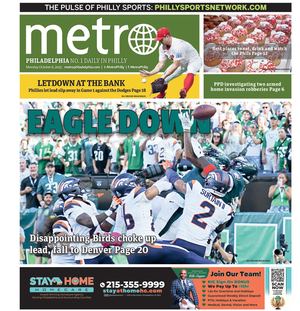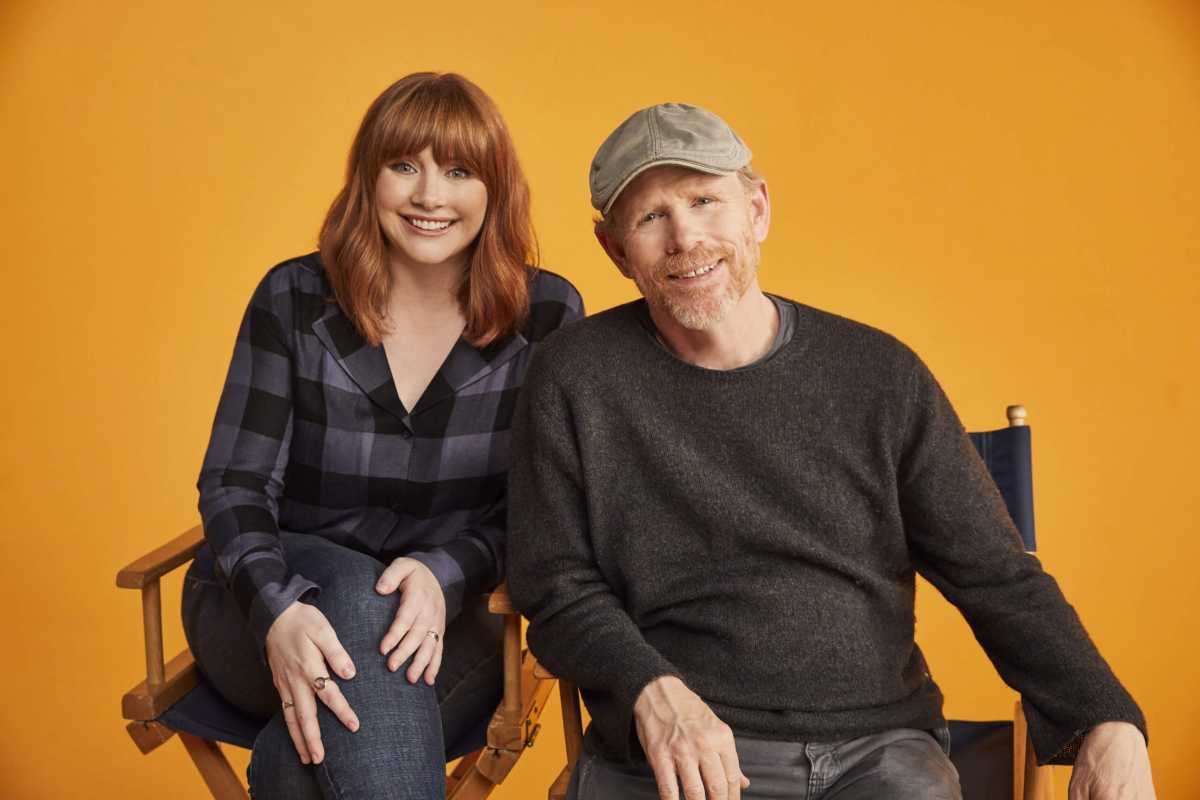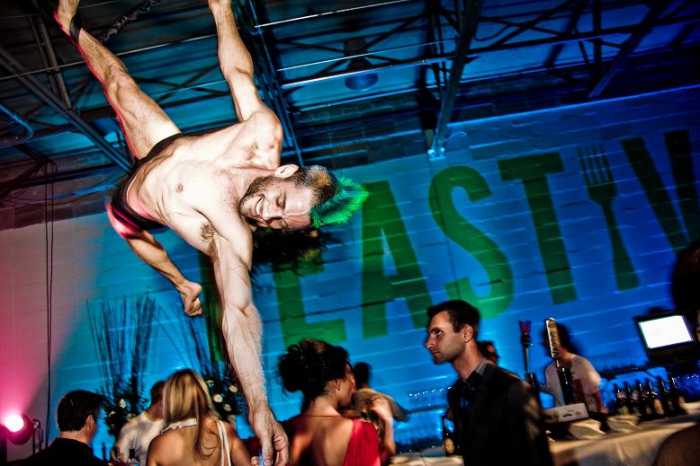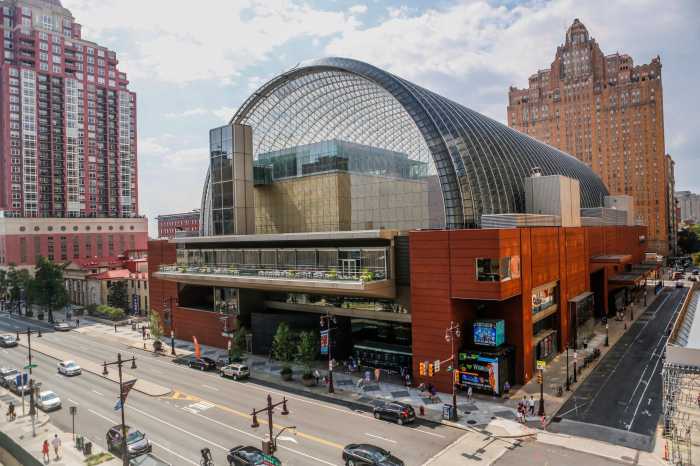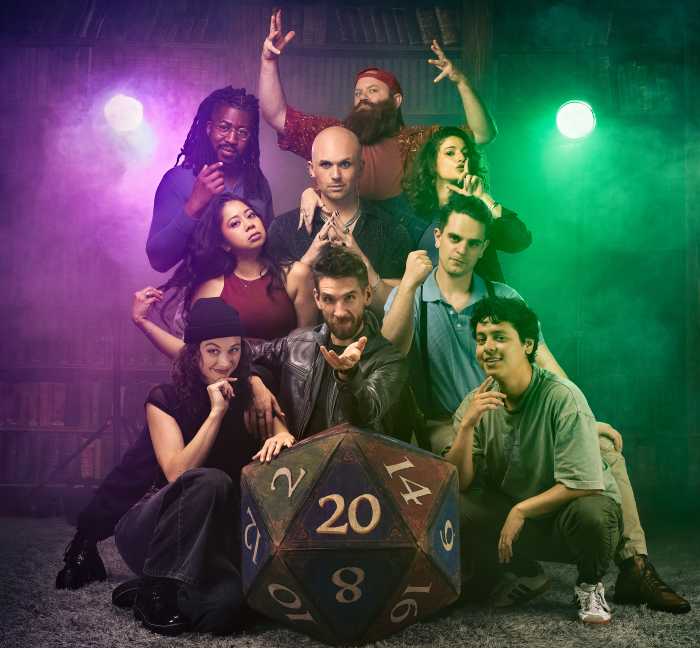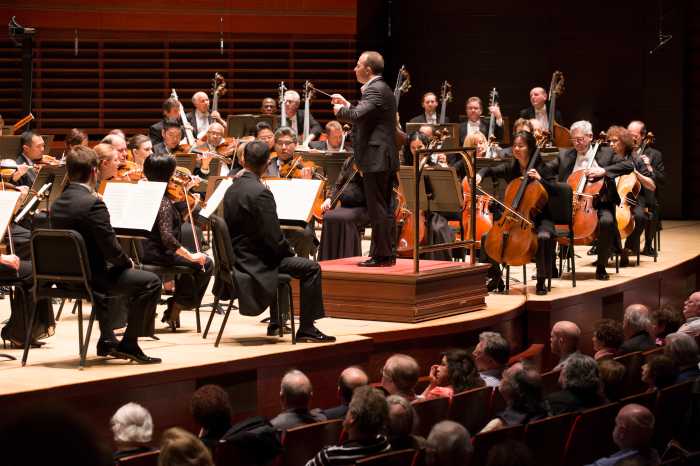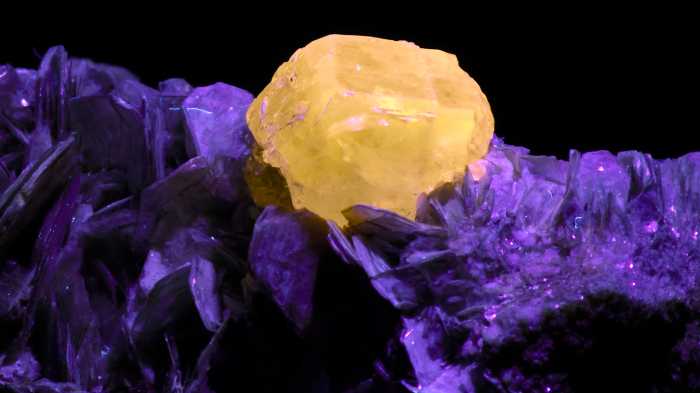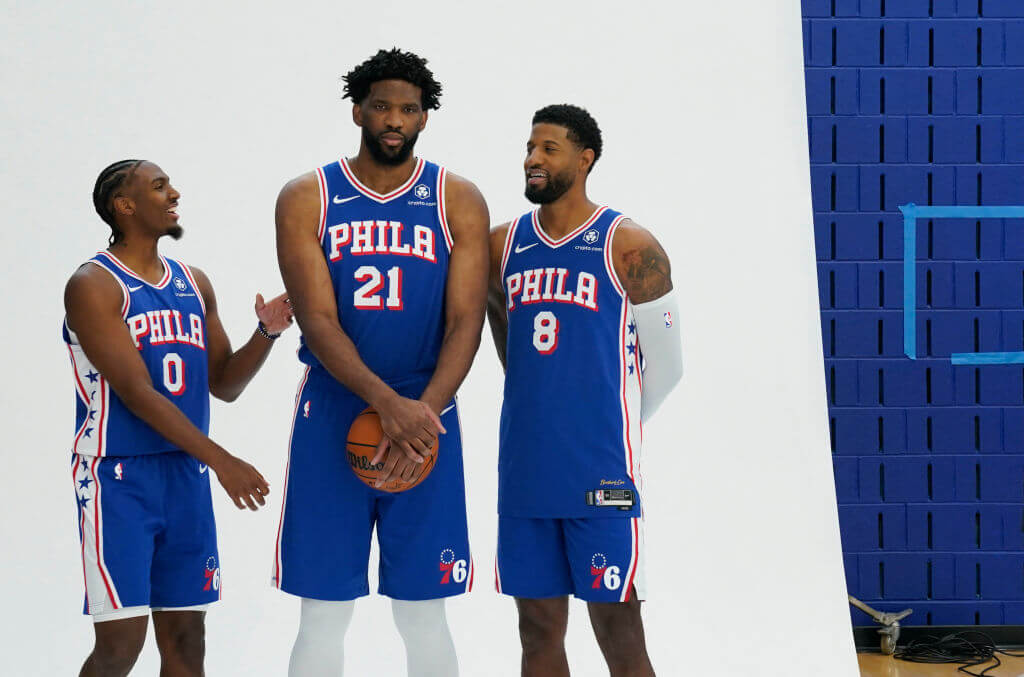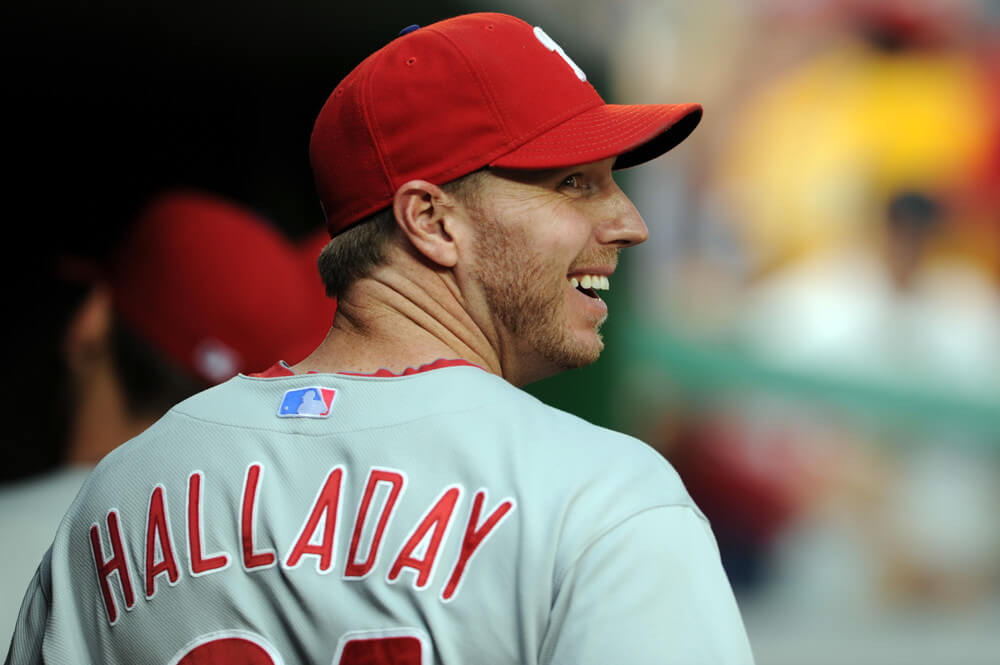Throughout our lifetime, for the most part, the view on a familial structure has been that mothers take care of the kids and fathers are providers. Now, in recent years, some notions surrounding that ideology have surely changed, but for the most part, men are still categorized as workers—and when a baby comes into the mix that thought is still there. That’s exactly what director Bryce Dallas Howard wants to change and focus on with her documentary ‘Dads.’
The latest work from Howard—who recently started picking up directing with gigs such as ‘The Mandalorian’ and a few notable shorts—focuses on a wide variety of father figures both in the entertainment and real world. The project also took on a more personal venture for her as well when Howard got to include her own father, filmmaker Ron Howard, and brother Reed Howard, in the film. The results provide a learning experience for audiences and an ode to all dads out there, who as Howard says are “inspiring in what they do.”
Howard sat down with Metro to talk more about why she wanted to make this documentary and what she hopes ‘Dads’ will do to help change the mindset of a father’s role overall in society.
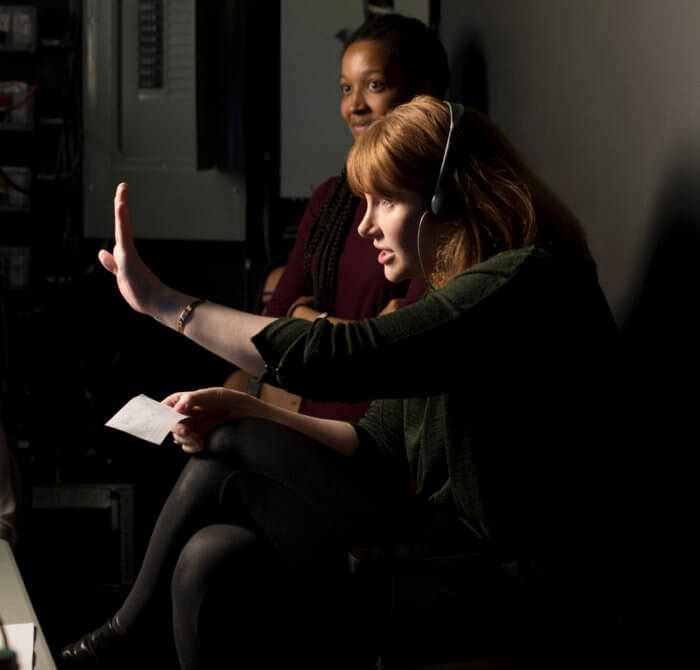
What first sparked the idea for this documentary?
I went up for a meeting at a place called Unilever, and Unilever owns brands of Dove and Dove Men + Care, and Dove Men + Care has a lot of initiatives around supporting fathers, specifically most recently around paternity leave. They wanted to do a prosocial documentary about fathers around the globe, so I went and I met with them, and there was a gentleman from a place called the Promundo Institute there. He talked with me and educated me a bit on kind of what some of the challenges are that dads are facing today, and honestly really how backward our global culture is when it comes to supporting fathers. I learned that the majority of men who get paid paternity leave do not take it because of stigmas around men being a caregiver and the fact that it would be assumed that they’re not hard workers or they’re not committed to their careers or not taking their work seriously. Upon hearing this, I was like absolutely I would love to make a documentary about fathers around the globe and to really celebrate the modern dad, because everyone who I’ve seen who are dads are awesome. No one is incompetent, no one is shirking responsibility—no one is perfect, but on the whole, I’ve seen that fathers are just as committed to parenting as mothers and yet that’s not depicted.
What kind of research went into making this documentary and finding all of the families and fathers that are shown?
There was really two lists at the end of the day. There were the comedian dads, and that list was really sort of like, “Okay, who do we wish in our hopes and dreams can be in this documentary?” Out of that list came all of the gentlemen who ultimately participated. In terms of our, I call them ‘hero dads,’ I was really excited to learn more about the daddy blogger community. Glen Beleaf Henry was one of the first fathers we contacted and decided to feature, and him being the first opened up access to so many fathers who have created platforms for themselves and their various communities of fathers to tell and share their stories. So we found Shuichi (Sakuma) because there was a comic written about him and our producer happened to see that comic, and Thiago (Queiroz) is very involved in blogging and he’s got a podcast in Brazil and is involved with the Promundo Institute, the place where we got the majority of our research. In a way, it wasn’t hard to find dads at all, it was mostly challenging to narrow down all the wonderful fathers to the select the few we were featuring.
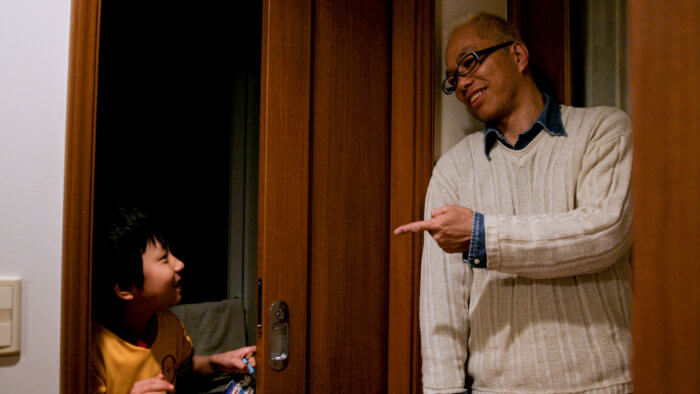
You obviously have some of your family, your father and brother in it as well, was that a part of the original plan?
It wasn’t a serious idea, it’s something that I had mentioned as kind of an outlandish possibility that my dad instantly shot down, and at that time, my brother’s wife wasn’t pregnant yet and it’s not like they were trying or anything. So I never thought in my wildest dreams that something like that would happen. I kept needing and expecting my dad and my dad knew that, I kept saying that and then we found out that my brother was going to have a baby and I just thought, “Oh my gosh I’m going to ask him.” He and Ashley really graciously agreed to participate in it and then it just made sense for my dad to be interviewed and for there to be a personal angle to the documentary as well.
Out of all of the interviews you did, are there any that stand out to you specifically?
What I would say is the interview I did with my brother was really, really special. He’s even said many times since then that even if this didn’t result in a movie, that interview alone was so wonderful because we got to connect on so many things that we necessarily wouldn’t have been talking about. He’s also the youngest of four so he gets neglected and forgotten a little bit, so us just having that one-on-one time was just amazing. And there was stuff he didn’t know—I’d heard my dad say so often that his biggest fear was that he was afraid he would never be as good of a father as his own father. The fact that my brother hadn’t heard that himself and that came out in the interview, and that’s a fear that he shares—that was a huge surprise for me.
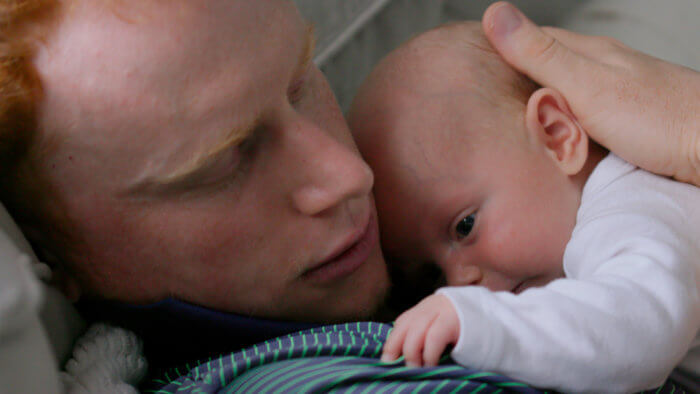
What do you hope audiences take away from ‘Dads’ after watching?
Our imaginations are limited to what we see most, what is modeled for us and what we see possible. Our culture and our society—and when I say ‘our’ I mean human, in varying degrees—but all in all are in a large part unsupportive of men fathering. The focus is much more about men working and men being providers. This is an antiquated notion of what a man’s role is in a family life. If this movie does anything, I hope that it does what my next door neighbor did for my son. When my son was 7 years old, my neighbor was a stay at home father, the mother worked, the kids were the same age, and they would always play together. One day my son came home and said ‘I know what I want to be when I grow up, a stay-at-home dad.’ If he had never seen our neighbor, he would not have known at that point that it was possible. He would not have been able to be as connected to his own hopes and dreams and potentially his future purpose and destiny. He’s 13 now, and he would be an extraordinary father and especially, a great stay at home father. I hope that the great dads out there feel seen, feel celebrated and they continue to do the inspiring work that they do.
‘Dads’ drops on Apple TV + June 19.
